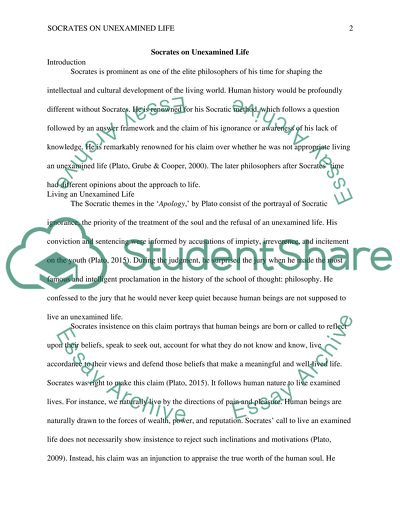Cite this document
(“Socrates on Unexamined Life Essay Example | Topics and Well Written Essays - 1250 words”, n.d.)
Retrieved de https://studentshare.org/philosophy/1701324-socrates-on-unexamined-life
Retrieved de https://studentshare.org/philosophy/1701324-socrates-on-unexamined-life
(Socrates on Unexamined Life Essay Example | Topics and Well Written Essays - 1250 Words)
https://studentshare.org/philosophy/1701324-socrates-on-unexamined-life.
https://studentshare.org/philosophy/1701324-socrates-on-unexamined-life.
“Socrates on Unexamined Life Essay Example | Topics and Well Written Essays - 1250 Words”, n.d. https://studentshare.org/philosophy/1701324-socrates-on-unexamined-life.


